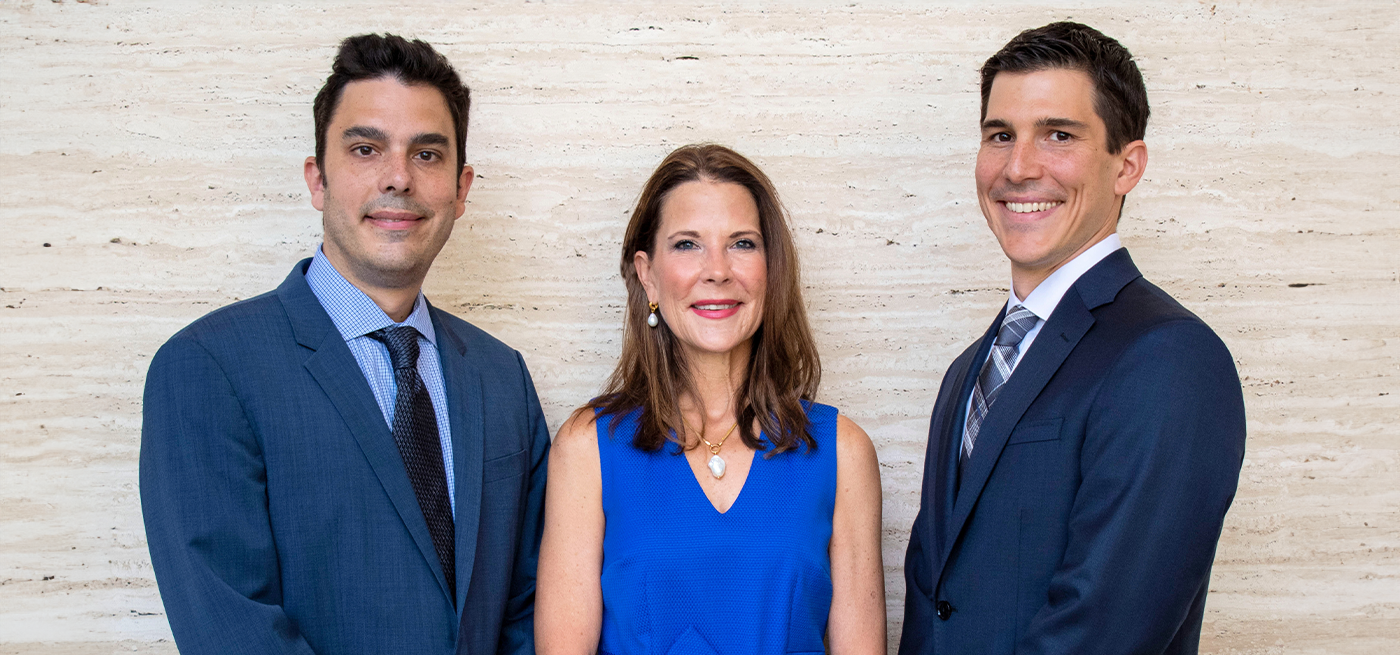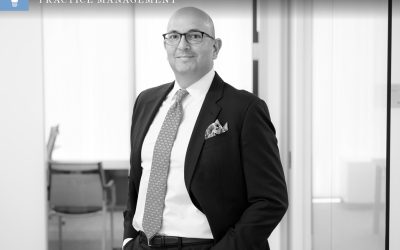Parent-child succession planning can be tricky–but it doesn’t have to be
Parent-child succession planning can be tricky–but it doesn’t have to be

With 40% of financial advisors considering retirement in the next decade, a significant segment of practice owners are considering selling to a family member. How can they plan for a successful transition?
Many advisors bring their adult children into their practice with the intention of eventually handing over the reins. Most times, the transition goes off with few issues—other times, there can be significant challenges that careful planning can overcome.
We asked two industry experts and two successful advisory practices that are implementing succession plans to share their views on best practices for making sure parent-child transitions proceed smoothly.
 Stephen Caruso
Stephen Caruso
Senior analyst in the wealth management practice at Cerulli Associates, based in Boston, MA
“Across the industry, close to 40% of advisors are considering retiring in the next 10 years, and 18% are considering selling to a junior advisor or a family member.

Source: Adapted from Capital Group, “Transitioning your practice the way you want,” https://www.capitalgroup.com/advisor/practicelab/articles/successful-succession-planning-for-financial-advisors.html. Data sources: “Transitioning your practice the way you want,” Cerulli Associates, 2022; “More than 72% of rookie advisors still fail out of the industry: Cerulli,” AdvisorHub, June 2023; and “How to succeed in succession planning,” Barron’s Advisor, 2022.
“Those who are considering adding a family member to the practice need to ensure that their chosen successor has the resources and capabilities to adequately care for the practice in the long term.
“Style differences should also be considered. Does the senior advisor have one perspective on the market, while the junior advisor has another? How do you negotiate that style transition?
“Our research with practice manager professionals suggests that it takes about five years for junior advisors to acquire the necessary skills to take over a practice. I think with family-based succession, advisors should be prepared for that timeline, or possibly a longer one, depending on the professional development of the family member slated to take over that book.
“Practice leaders should structure the succession transaction in a manner that ensures everyone has the components that they need to find success after the deal is concluded. For instance, when assessing the value of the business, are you using a valuation metric that all parties—including the successor—agree on? How are you financing that transaction?”
 Dina Sonenshein
Dina Sonenshein
Senior practice management consultant at Commonwealth Financial Network, based in Waltham, MA
“If a parent is bringing a child into a practice, have explicit conversations about expectations, role, time frame, and so on. Make it clear that this is a job—you’re the employer, and they are the employee. It’s not that you’re going to completely forget that this is your child, but to the extent feasible, it’s important to be respectful of that boundary.
“Make sure that you’re prepared for your business to change. That’s the first step to creating an environment where you can begin to incorporate your child’s perspective about the future direction of the company.
“Succession transactions should be formalized, tax and legal experts should be consulted on estate planning, and time should be spent mapping out the finances and hand-off of client relationships. In addition, the owner may have to balance the needs of multiple children, not all of whom are in the firm, or in some cases are in the firm, but not all are advisors.
“In terms of business management, three things come to mind. The first is to be transparent with your current staff about your succession plans. You don’t want to surprise a key person who thinks that they have a pathway to ownership if that’s not the case. The second is to make sure your profit and loss statement is clean before the transition. And finally, balancing capacity planning and cash flow can be difficult during the transition.
“It’s important to be sure that there’s sufficient cash flow in the business for your child to pay off their loans and continue to grow the business. If you’re slowing down or exiting completely, will your child have the advisory resources to meet client needs, or will they need to backfill? And if they need to backfill, will they have the cash to do so?
“Think broadly about the competencies that will be required of your child to take over the business. This industry has tended to focus on technical skill development and has paid less attention to the managerial and leadership skills that are critical to running a business.
“Be honest about your own time frame and your interest in staying in the business, potentially as a minority partner. It can be hard for a child to live in limbo and adequately prepare for the transition if the time frame and expectations keep changing.
“I like to think of succession planning as business planning. Too often, advisors are focused on the transaction and wait until a year or two away from their desired retirement to start working on what they want for themselves and their businesses. My advice is to start early—maybe five to 10 years in advance, depending on the size of your firm—and think holistically about the process. By thoughtfully approaching this, you can have a successful transition where everyone prospers.”
RAI Advisors
Murfreesboro, TN
Chad and Parker Molitor are a father-son team specializing in wealth management and retirement planning. Since 1996, Chad has worked with retirees and those nearing retirement to help grow and preserve their retirement assets, including all types of investors “from the novice to the more experienced.” His son, Parker, joined RAI Advisors in 2012, and they have forged an effective team approach in business development, financial and investment planning, and serving the overall needs of their clients.

From left to right: Parker Molitor and Chad Molitor.
Chad Molitor: “LPL, our broker-dealer, has teams of people with whom we have consulted to ensure the proper setup of our succession plan. They have helped us make sure the plan is fair to all parties involved, that it includes accurate terminology so that we’re compliant, and that it also works well from a tax-planning standpoint.
“Considering how accounts are set up and how compensation is spread among the team members is important. This ensures that everyone’s tax obligations on their share of the company’s income and revenue are managed effectively and are in the best interest of all involved.
“Moreover, if we use a term that seems fitting to us but technically means something else or we’ve misapplied it, it could come back to bite us. For example, we could have used the term ‘disperse’ to mean to pay or distribute, but technically it means to spread widely, drive off, or cause to vanish.
“If you have a team of people, and you have a well-oiled machine that’s working nicely, it can be somewhat of a challenge to bring one of your adult children into that environment. You cannot give them favorable treatment because they’re your own flesh and blood and you want them to succeed. You care about the rest of the team, but there is a natural inclination to favor your family member. That can cause tension in the team, as well as some envy and jealousy.
“We need to be sensitive to the feelings of all employees so that it does not become an issue. I think it was very helpful that my son Parker had worked in the industry as a paraplanner before joining our firm and had already demonstrated strong professional knowledge and dedication to the advisory field.
“Overall, having Parker join our firm and work with me has made my job all the more satisfying, both personally and professionally. We share a tremendous passion for the business and for helping our clients move forward on a path toward achieving their wealth-building and retirement-income objectives.”
Parker Molitor: “It’s important to have expectations from the outset for both the parent and the child regarding their respective roles and how those roles will evolve over time. It’s important to know if the parent intends to step back now or simply slow down a bit.
“You’ll want to have a game plan to ensure everybody is on the same page—especially the senior partners. This way expectations are clear—not only for the first year but also for five and 10 years down the line—and there will be no surprises.
“Our goal is for me to eventually take over everything, but we don’t know when yet. My dad wants to remain active in the business for as long as his physical and mental health allow. But the day-to-day activity has already transitioned to me, and I now bear primary responsibility for many things. I’ve been here for nearly 12 years. One day, my dad will step down, and I’ll continue with the business, but hopefully, that’s still quite some time down the road.
“Certainly, there can and should be flexibility in the succession plan to allow for adjustments. However, you need to make sure that over time, the parent isn’t the only one who’s calling the shots. The successor, whether it’s the child or someone else, should not be in a position where they don’t know what to expect or have any say in it.
“It’s also important to communicate your plan to clients so they know what’s going to happen. I’ve seen other family-run offices struggle with this. Clients are very happy working with the older family member for years, and then all of a sudden everything shifts to the younger generation.
“Clients may feel they aren’t getting the same communication or experience level from the newer, younger advisor. It’s important to show confidence in the younger advisor and let them gradually take the lead in client relationships. Our big focus as we grow is to try not to make the business too reliant on any one person, and we let clients know that they’ll be working with a larger team.
“As my dad gradually steps back from handling the business side, I’ve considered hiring a professional manager to assume those responsibilities. This would allow me to focus on what I excel at and enjoy doing within our company. Essentially, this would involve delegating more of the accounting, daily business operations, and implementation of strategic plans—many of the non-client-facing activities that need to be done for the company to run smoothly and continue to grow. You might consider this a COO-type position.
“We have grown pretty significantly, and you just can’t keep wearing all the hats. You have to give others a chance to take on new responsibilities, and allow yourself to focus on the big-picture strategic tasks that only you as the owner can do.”
DeRose Financial Planning Group
Chicago, IL
In 1996, Karen DeRose founded her firm after working with her father at his insurance company. She has built a practice where a customized, comprehensive financial plan could be tailored to each of her clients’ financial lives. Her son Anthony joined the firm in 2009, after working for Deloitte as a CPA focused on international taxation. He is now a partner in the firm. Anthony specializes in Social Security strategies and is also a member of Lincoln Financial Advisors, member SIPC, Business Intelligence Institute, which provides business owners with innovative strategies to help grow and protect their business. In 2018, Karen’s son Nick also joined the firm. As a partner, Nick oversees and directs the firm’s planning team, facilitates implementation of plan recommendations, leads client planning meetings, and is currently working toward his CFP certification.

From left to right: Anthony DeRose, Karen DeRose, and Nicholas DeRose.
Karen DeRose: “For a parent to have a successful practice with their children, it’s important to understand that your children are not you. They have their own views and ways that they will want to run the firm, and you need to give them that opportunity and let their voices be heard as you bring them into the business. Your role is to mentor, guide, and support them. They will make mistakes—that is part of learning!
“In addition, we have learned that you need to have the right people in place and draw on their support and strengths—which is why we chose an ensemble team approach. The client is better served with a team that includes a paraplanner, a client service advisor for follow-up, and a lead advisor for strategy and business development, along with the support staff for the implementation.
“It’s important to understand each position’s responsibilities and continue to reassess as the firm grows. It’s a CEO mindset, and leadership skills are paramount. This philosophy needs to be instilled in your firm to develop a culture that everyone wants to thrive in and to create a world-class client experience.
“I am the managing partner today. After I retire, that will be my son Nick, as his particular strengths are operations, processes, people engagement, and technology. Someone has to do this, and he is good at it.
“When devising our succession plan, we hired the firm What’s Next Coaching, which specializes in advisors and their teams. Over the last year, they have helped us develop the roles of my sons, divvying up duties based on their strengths.
“Anthony and a nonfamily member, Matt Parker, will be partners along with Nick. Nick will oversee the daily operations of the firm and higher-touch clients. Anthony oversees estate-planning strategies, working with attorneys and other professionals. Matt and Anthony are both being groomed for the business-owner planning. The plan for me is to do less and less, letting my sons run the meetings and team, while I become more of a mentor and coach.
“It’s smart to work with a consulting firm because they bring a lot of expertise about things that we may not be thinking about. For example, we’re now going to have paraplanners become advisors, so how do we shape that compensation? How do we shape nonowner versus owner compensation? What is the right salary and structure for bringing on new clients, since existing clients still have to be maintained?
“My advice for bringing a family member or any junior advisor into this business is to make sure that they are in the paraplanner role first, so that they’ll know planning from the bottom up. I also encourage obtaining the CFP designation—it is the gold standard in the industry.
“Lastly, you need to make sure the client sees the junior advisor. They need to be at all client meetings, presenting, preparing all the notes, and doing all of the follow-up, because you learn by doing. You want to set them up for success!”
Nicholas (Nick) DeRose: “I wasn’t initially thinking about joining the firm. I was a finance major in college and looking to go into more of the corporate finance and risk-management realm. Right out of college, I decided to take a detour and go into medicine, building a resume through continuing education, volunteering, shadowing, and pursuing work experiences to help me gain acceptance to medical school. I accomplished just that, but after one semester in medical school, I realized it wasn’t my true calling.
“Once I moved on from medicine, I was looking for a new job, trying to ease back into the financial world. I helped my mother out with her planning firm for a period of time. I began to make a huge impact on the firm in terms of modernizing our technology and making the practice more efficient in many ways. I ended up seeing the value that I could provide for the firm in the long run. Fortunately, my mother agreed.
“I think the biggest thing to making our family practice successful is constant communication. We’re always bouncing ideas off each other as new client and employee situations surface. We all have our unique personalities and nuances, so it’s important to maneuver within those dynamics, understanding how we each operate and deal with conflict.
“Overall, I feel the biggest challenge is transitioning our clientele to the next generation and building relationships with the clients’ children in order to keep the planning among the family. Multi-generational wealth planning is what we do, and our clients have stated that they want their children to start planning earlier than they did. They hope their children will be more prepared when it comes to their wealth and in making informed financial and life decisions.”
Anthony DeRose: “As an undergraduate, I majored in accounting and international studies at Indiana University. I also earned an MBA there in accounting, with a concentration in financial analysis. I went on to law school at the University of Illinois College of Law and then joined the tax and consulting firm Deloitte, where I focused on international taxation as a CPA.
“Coming into my mother’s firm, I think my background really helped to prepare me for my life as a financial advisor. My experience in financial analysis, law, and accounting helped me see the challenges that arise in our business from many different sides. We often work with multiple generations within a family, so an understanding of the legal, tax, and accounting issues related to planning is invaluable. My prior experience was also very analytical and quantitative in nature, and that is helpful when evaluating investment and retirement distribution strategies for clients.
“For a family practice to be successful, the barrier between parent/child and boss/employee needs to be respected—by both sides. It took a while for us to figure that out—for example, not taking advantage of the situation from my end. It also means not talking about work when we’re all at dinner with our families or in other family situations.
“My relationship with my mother has always been good. She’s been a mentor to me, and that really made a big difference going into this. My mother started the succession plan years ago, and she’s been having me meet with the clients to get to know them thoroughly over the past 12 years. We have worked extremely closely in the planning process with clients, which has not only built my knowledge of their needs and objectives but also their comfort level with me.
“There’s one thing that you’re always kind of dealing with—the idea of nepotism. I’ve reached partner now, so I think I deal with this better. But when I was first moving up in the firm, I always worried about whether I was perceived as working as hard as the next person.
“I think that it’s really important that you take a step back and understand where you are in the role that you are in. I’m hoping that my background helps in that respect, kind of counteracting any questions about favoritism. Also, my mother treats me like any other employee. I have annual and quarterly reviews, and it’s a real employer-employee relationship.
“This is a really fun job, and if you have a good relationship, going into it with your parent can only strengthen that relationship. I’ve seen it now from a third-generation perspective because my mother worked with her father, and they had a good relationship. That’s been passed down to us now. I have a little one—she’s three. My mom got her a T-shirt that says ‘future financial planner.’ You never know. She could be the fourth generation.”
The opinions expressed in this article are those of the author and the sources cited and do not necessarily represent the views of Proactive Advisor Magazine. This material is presented for educational purposes only. Please see each advisory firm’s website for further disclosures: RAI Advisors, www.raiadvisors.com; DeRose Financial Planning Group, www.derosefpg.com.
CFP and Certified Financial Planner are registered trademarks of the Certified Financial Planner Board of Standards Inc. (CFP Board).
 Katie Kuehner-Hebert is an award-winning journalist with more than three decades of experience writing about the financial-services industry. She has expertise in banking, insurance, financial planning, economic development, and employee benefits, and her work has appeared in many leading publications.
Katie Kuehner-Hebert is an award-winning journalist with more than three decades of experience writing about the financial-services industry. She has expertise in banking, insurance, financial planning, economic development, and employee benefits, and her work has appeared in many leading publications.
RECENT POSTS








